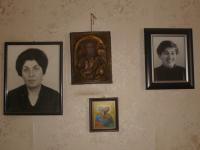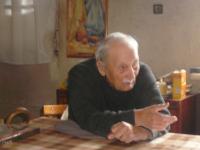“All Germans that were former captives were sent to sanatoriums for rehabilitation, Stalin sent everybody to the mines”

Download image
Was born in November 02, 1921 in Chiatura. His father Valerian Japaridze was a director of a gymnasium, mother Vera Gamkrelidze was a teacher. Simon had one sister and a brother. He finished school in Gurjaani. In 1940 he was conscripted into the army and sent to Latvia, while he was serving the war broke out in 1941, the same year he was taken captive and sent to prisoners camp in Krushina (Poland) where he stayed till the war was over. After liberation he continued to serve in the army and stayed in Hungary for one year. Simon returned to Tbilisi in 1946 and entered to the Agriculture Institute. He graduated in 1951 and started to work at Anaseuli Institute of Tea and Subtropical Cultures in Sokhumi. He married Liana Ochaleishvili in 1952, she was an English teacher at Russian school. In 1953 his daughter Marina was born. Marina got education in Sokhumi and later worked as an English teacher in Russian school like her mother. In 1992 the family arrived to Tbilisi due to conflict situation between Georgian and Abkhaz people, though after Eduard Shevardnadze’s call for return they went back two week later. Afterwards the family had to run from Gulripshi with the boat arrived from Batumi; Certain period of time they have been living with Simon’s sister, later they moved to the Mining Department Building where he lives until now. Currently he is alone, his wife died in 1996 and daughter in 2012 He does not have any documents or photographs as he was not able to take anything from Sokhumi

